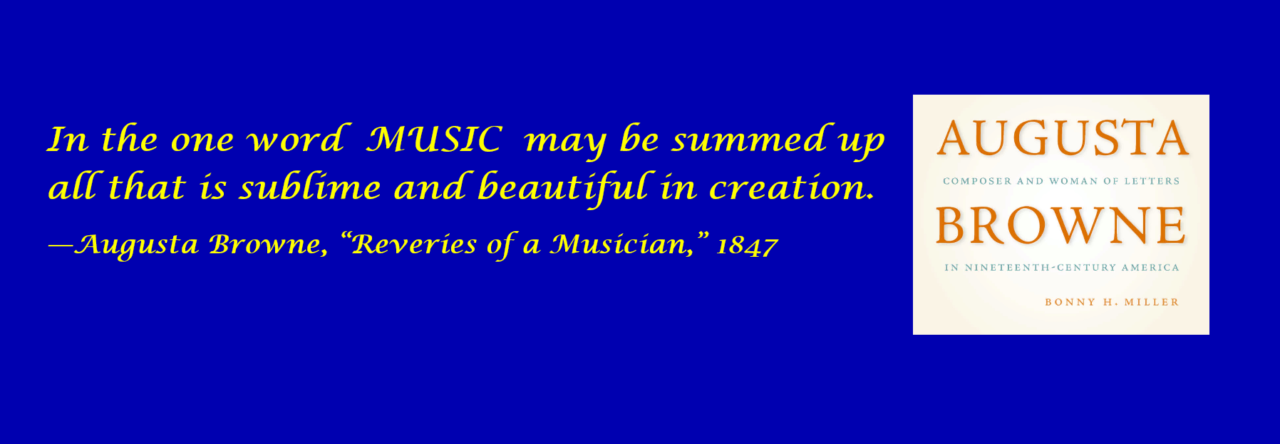Where can I see sheet music by Augusta Browne? How can I hear music by Augusta Browne? These are the questions people ask most frequently about the composer. On the Music Editions page of this website, you will find links to open-access databases that include nineteenth-century imprints of music by Browne. The Music Editions page lists more than eighty music titles available online. The entries are arranged by genre (piano pieces; songs; hymns), then alphabetically by title.

Look for “Listen to the Music” links on the Music Editions page for online performances of music by Augusta Browne. Some renditions are recorded performances, others are audio files generated from Finale music notation software.

